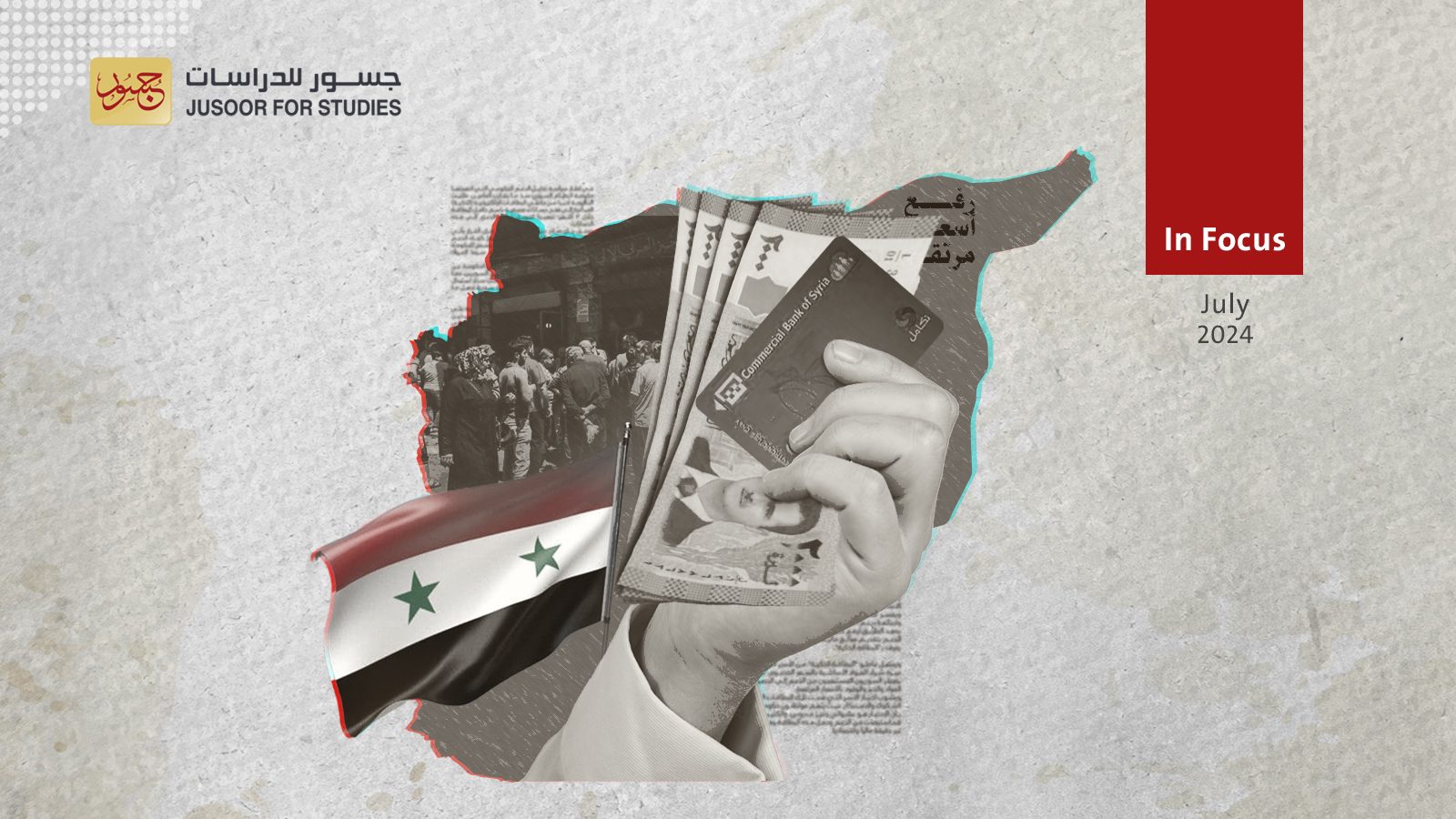Why is the Regime Shifting from Subsidies to Cash Handouts?
On June 25, 2024, the Syrian regime’s Council of Ministers instructed holders of social welfare cards to open bank accounts within a period of 3 months, as part of preparations to replace the existing system of subsidies on consumer goods to a system of cash handouts. The Ministry of Finance appended the decision to a circular issued on June 30 that also ordered public banks to lengthen their opening hours and to open on Saturdays to enable cardholders to open bank accounts.
Approximately five million Syrians have the electronic cards, each of which—according to the regime’s figures—cost the state more than 9 million Syrian pounds ($600) a year. This means that the state spends more than $3 billion a year on subsidies.
At United Nations Security Council meeting on June 25, the Syrian regime and its allies complained that the UN humanitarian response plan had met no more than 13 percent of the country’s needs for 2024 over the first six months of the year. These numbers are not expected to improve, given that Russia last year vetoed a draft resolution that would have authorized a nine-month renewal of cross-border aid‑delivery to northern Syria, hobbling efforts to assess needs and impose international supervision of aid distribution.
The UN has also made moves to set up and finance an early recovery fund, restoring its ability to assess Syrians’ needs, supervise the implementation of early recovery projects. The body wants to link aid funding to a change in the regime’s behavior and its response to demands for reforms that would mark progress in the political process, in accordance with UNSC Resolution 2254.
The regime has linked its response to such demands to improvements in the economy. Poor living conditions are threatening to fan the flames of public discontent and could lead destabilize the areas under regime control. Damascus failed to obtain a hoped-for tranche of Arab funding, as it had not made any progress in implementing the so-called Amman and Cairo statements, while the work of the Arab Ministerial Liaison Committee was suspended.
The regime is now threatening not to renew the permission it had granted to the UN to bring humanitarian aid across the Turkish border into areas outside its control. This permission expires on July 13 for the main crossing at Bab al-Hawa and on August 13, 2025 for the Bab al-Salama and Al-Rai crossings. The regime argues that it can open internal crossings within Syria and allow for deliveries of aid across truce lines, instead of across international border crossings, in an attempt to force the UN to switch to cash support instead of the in-kind humanitarian aid the world body had used to avoid interference by the regime.
The regime’s plan would likely require the delivery of UN humanitarian aid in the form of direct cash support via bank accounts, making use of the five million cards, whose data would be provided to the organization. The regime would in turn remove subsidies on consumer goods, making the state the largest beneficiary of the process. It would also slash the amount of cash placed in each bank account, holding onto the dollars allocated for aid and placing the equivalent in lira in each accounts at a rate it determines so it can benefit from the difference between that and the real, market rate of the dollar—and use those dollars in other international trade operations.
The regime may also work to provide a portion of the subsidies it claims to provide on various consumer goods, such as bread, by providing cash support via bank cards instead of supporting the production of the goods themselves. It could do so by replacing the subsidies paid out by its treasury with international support for early recovery projects, if they arrive, as the process of transitioning towards cash support is part of preparations for the appropriate legal, economic and technical framework for receiving early recovery funds, a portion of which will be transferred to individuals’ accounts to support small economic projects or as cash allowances for food.
Finally, the move to shift towards cash support appears to amount to a plan on the part of the regime to steal UN humanitarian aid. It would serve the interests of the clientelist networks around the regime and act as a means to subjugate anyone protesting against poor living conditions by depriving them of aid funds. It could do so by blocking them from accessing their bank accounts, placing administrative obstacles in their way either to prevent deposits or making it impossible for them to spend their funds.








